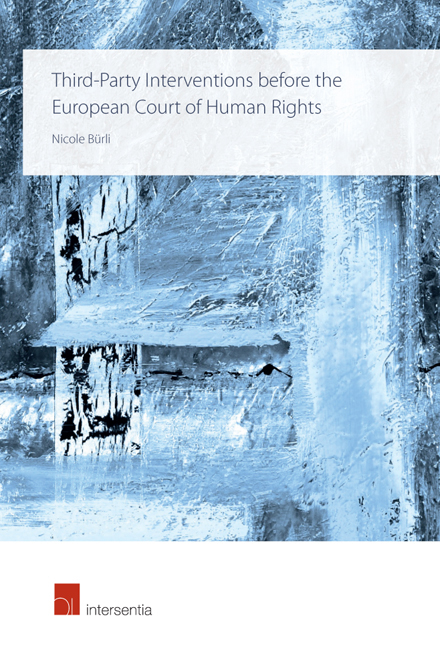 Third-Party Interventions before the European Court of Human Rights
Third-Party Interventions before the European Court of Human Rights Chapter 4 - Actual Third-Party Intervention
Published online by Cambridge University Press: 29 September 2018
Summary
PRELIMINARY OBSERVATION
In recent years the Court has increasingly decided cases which originated in civil disputes between two private parties. The Court, for instance, has decided cases originating in disputes on paternity, 1 between neighbours about border fences, on inheritance or cases involving the abduction of children. Yet the Court does not bear all consequences that come with the administration of civil justice. It neither encourages the participation of the third party who was a party to the national proceedings nor engages with third-party briefs if they are admitted to intervene. This can cause a severe imbalance in the administration of justice. The Court might, for instance, decide that a father cannot see his child again without ever having heard him.
In addition, interviews with judges have revealed that they disagree as to whether interventions by these third parties should be welcomed. While some judges have stated that the prevailing party in the national proceeding should be allowed to intervene, another judge was of the opinion that the Court should generally refrain from adding this type of third party to its proceedings.
This is also reflected in the concurring opinion of Judge Wojtyczek in the case of Bochan v Ukraine. He finds the discretionary nature as well as the Court's current practice to allow individuals to intervene only sometimes inadequate since it ‘does not equate to a guarantee of the right to be heard. It is not always used where the rights of third parties are concerned’.
Despite the increase of cases originating in civil disputes, the literature has largely neglected third parties who stand to be aff ected. The literature dealing with interventions before courts usually addresses amici curiae and only rarely refers to actual third-party interventions. This chapter aims at closing this gap by conceptualising the role of interventions by third parties who have been implicated in the facts of a case. Determining the role of third-party interventions might also assist the Court in deciding whether to accept or deny requests by third parties.
ORIGIN AND NOTION
The exact origin of third-party intervention is unknown. According to Chitty's description from 1833, third-party interventions stem from ecclesiastical law.
- Type
- Chapter
- Information
- Third-Party Interventions before the European Court of Human RightsAmicus Curiae, Member-State and Third-Party Interventions, pp. 157 - 182Publisher: IntersentiaPrint publication year: 2017


